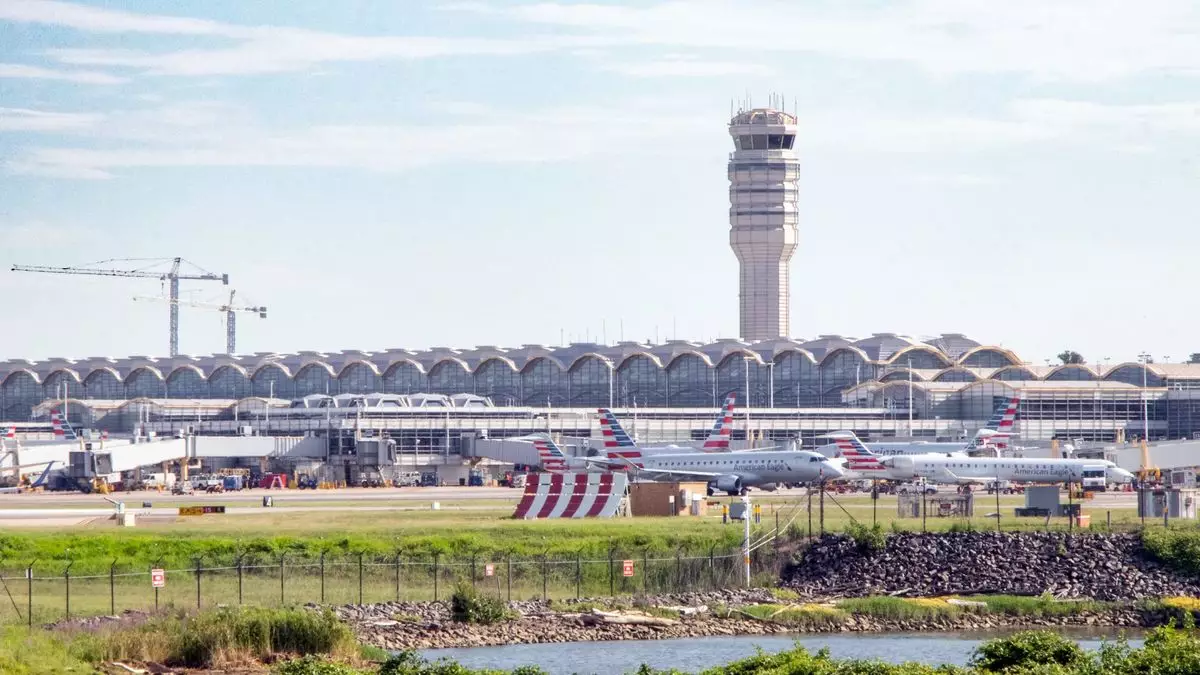The U.S. Department of Transportation (DOT) has made significant waves in the airline industry by announcing the preliminary allocation of five daily slot pairs at Washington Reagan National Airport (DCA) for flights beyond the existing 1,250-mile perimeter. The DOT’s decision, unveiled on Wednesday, signifies a major opportunity for the selected airlines and introduces a competitive element for routes that have long been coveted by various carriers. Alaska Airlines, American Airlines, Delta Air Lines, Southwest Airlines, and United Airlines have all been awarded slots to popular destinations, while others like JetBlue, Spirit, and Frontier will remain on the sidelines.
The Strategic Importance of Slot Pairs
Understanding the stakes involved, it is essential to recognize that these slots represent lucrative opportunities for growth and increased market share. The awarded slots are designated for services that extend to San Diego, San Antonio, Seattle, Las Vegas, and San Francisco. This decision is particularly relevant as it stems from the Federal Aviation Administration’s reauthorization legislation passed in May of this year, which accentuates the demand for air travel beyond the perimeter.
The restriction meaningfully limits flights to destinations within 1,250 miles from Reagan National, affecting a vast swath of potential routes. The choice of awardees reflects strategic decisions about market access and overall profitability. While the selected airlines will be able to establish themselves in these new markets, the preliminary nature of the decision allows for competition in securing these slots, highlighting the dynamic nature of air travel regulations.
Competition and Operational Challenges
The awarded routes set the stage for both collaboration and competition. Notably, Alaska Airlines will have exclusive rights to fly to San Diego and American Airlines will uniquely serve San Antonio. However, the competitive landscape tightens with Delta and Alaska operating on the Seattle route, and Southwest taking on American for Las Vegas. United Airlines intends to strengthen its presence with an additional daily flight to San Francisco, showcasing its operational ambition.
The awarding of these slots also raises questions regarding the strategies of airlines that failed to secure routes. For instance, both JetBlue and Frontier, which aimed for San Juan, were deemed ineligible due to their current operational status within the perimeter. The DOT’s ruling is particularly interesting as it reinforces the importance of incumbency, a factor that JetBlue, in particular, may need to address in future applications.
With the clock ticking for potential objections, the next two weeks are crucial for any airlines wishing to contest these preliminary allocations. Once the decision becomes final, airlines will have a 90-day window to launch their new routes, compelling them to quickly strategize and implement operational plans. The implications of these new slot allocations extend beyond immediate competition; they foreshadow a reshaping of routes that could influence consumer choices, pricing strategies, and service quality across the board.
Ultimately, while some airlines rejoice in the opportunities presented, others will be left to reassess their strategies in the wake of missed chances. This landscape exemplifies the ever-evolving nature of the airline industry, where adaptation is paramount for sustained growth and market relevance.

